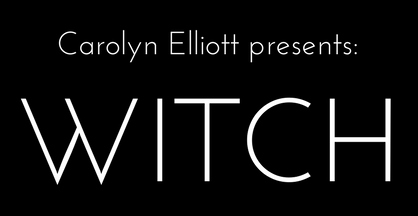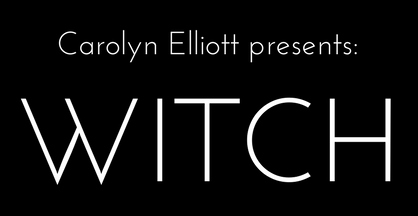You encounter a very familiar person whose words you completely trust.
You know this person to possess incredible powers to affect change in the world.
And this person tells you,
“I will cast spells on you,
subtle incantations,
every minute,
of every hour,
of every one of your waking days.
You might not feel them at first because they are subtle spells,
but they will certainly affect you,
for better or for worse,
continuously influencing your behavior,
your feelings,
your perception of reality.”
You would hope this person had your interests at heart, wouldn’t you? You would hope the spells were all aligned with your desires, your intentions. You would hope this person had some sort of method to the madness, and wasn’t planting suggestions in you at random, willy nilly.
Someone does cast spells on our every moment of every day. You do! And you are continuously planting powerful suggestions in yourself that affects your behavior, mood, and reality. We call it your Internal Dialogue.
Our consciousness as humans comes with the ability to think beyond our present moment and “communicate with ourselves.” We know that language creates reality and how we think to ourselves greatly affects (and perhaps has the greatest effect) on how we act, how we feel, and how we experience the world.
To say the we should just “think positively” ignores the nuances of how internal dialogue works. Below lie three critical keys to how we can cast better spells on ourselves.
1 Drop “to be”.
When I coach clients for the first time, very often they will say some version of “Things aren’t moving for me” or “I am stuck around (insert life issue)”. I notice that as they describe their current challenge, such persons often use conjugations of the verb to be excessively.
I am emotionally hypervolatile. You are sarcastic. He is an asshole.
Whether such statements carry truth or not does not matter as much as the implication of the word choice. ‘To be’ implies a permanent state. The implication of permanence has worse effects than thinking negatively, especially when it comes to adjectives:
“I am brilliant” seems like a nice thing to say to ourselves but doesn’t mean anything real. Such a thought may correspond to true events that happened, but by itself it’s too abstract to be material.
We need to think concretely in order to create in the material word. Thinking in abstract adjectives results in 1) false confidence in inappropriate scenarios, 2) a disincentive to continuously attend to our intentions.
Instead of “I am brilliant” a more real, usable, and humble though would be, “I inspired many people with my last article. I want to reach more people with my next one.”
The latter statements describe real material things and events. The former statement describes a vague state of being out in the ethers.
Gerunds (verbs we treat as nouns) also distance us from affecting reality. They detach us from specfic time and therefore material results.
“I am finding myself” can take forever. “I find myself on a Wednesday elbow-deep inside a jar of Nutella, then I go clean myself up” grounds us with real actions in real moments.

Deleting “to be” from our internal vocabulary isn’t as difficult as we may think. Whenever convenient I avoid the verb in my writing, but for this article in particular I made the hard rule against “to be” (save quotes and examples). It challenged me at first, but any static sentence can morph into an active one.
Internally the results speak for themselves.
For months last year I told people and told myself, “I am writing a book.” This meant nothing other than I had started a book and did not contribute to its completion. Now I make sure to ground my language. To truthfully think “I write” requires me to actually complete the action. I write in the morning. I wrote eight pages yesterday. I will write tomorrow.
Think in dynamic language. You will find a greater impulse to maintain your fluidity in your being as much as your doing.
2 Complete unwanted thoughts by externalizing them to real ears.
I have often thought how “internal dialogue” describes it incorrectly. If we speak to ourselves, shouldn’t we call it “internal monologue”?
But often we do mentally externalize our thoughts: replaying old conversations with new speech, projecting future conversations, creating imaginary conversations with imaginary people.
This comes from a human need to have ourselves heard. Like Peter Levine’s metaphor of “completing a throw” to release trauma, when we have an impulse to communicate and we don’t, it gets “stuck” in our psyches.
Speaking a thought to another affects the psyche much differently that “speaking” it in our head. Saying something to ourselves never gives the sense of completion.
Without completion, the thought never leaves. Recurring thoughts are like sewage water that won’t flush through the pipe. Eventually it will become rancid and cause a backup in your mind. The psychic clogging we call resentment.
Resentment = re- sentiment, the same feeling over and over again.
Making amends, speaking with coaches or therapists, and even venting to friends can have huge healing effects because they allow resentment to be released.

When I catch myself running the same internal dialogue multiple times, even if it doesn’t carry emotional significance, I take it as a sign to go communicate to someone. Otherwise my mind pipes will be clogged and I will have trouble creating.
If you have recurring thoughts that do not serve you, go talk it out. Literally talk it out of you with someone who can really listen. You will find more room in your mindspace for what you really care about.
We also must note that some emotionalized thoughts are better not spoken. We don’t want to share thoughts of our desires in process. Studies have shown that talking about our New Year’s Resolutions greatly decreases the chances of us doing it. Speaking them too soon has them “complete” in our minds before we can materialize them. We call this “jinxing” it. We want to keep those thoughts “incomplete” so they maintain the energy for creation. Some people call this energy “style”.
3 Consider style over information. Think in feelings instead of words.
We translate our thoughts into words in order to communicate them with others. But in speaking to ourselves we do not need to make that translation. Thoughts begin in our psyches as “energy” (viz: feelings) before we “materialize” them into word form.
Like freezing a fluid into a solid, thoughts can lose volatility when reduced to informative language. Similar to how explaining the humor in a joke ruins it, in describing emotion with facts often sterilizes it. For that reason poetry tends to preserve feeling better than exposition.
Creativity requires volatility, movement, changing form. This means maintaining the feeling of a thought over it’s information. Catherine MacCoun calls this feeling style.
Style is how energy takes one form or another. You could say that style is like an idea on an intention. Or you could say it’s like personality. Style is the essence of the matter.
~ On Becoming an Alchemist (MacCoun)
The statements “Mo’ money, mo’ problems” and “Increasing wealth causes greater life challenges” have very different flavors even though they mean the same thing informatively. They conjure much different feelings in us.

When it comes to behavior, mood, and perception, our style of thinking matters much more than the words we tell ourselves. For our internal “dialogue”, we actually don’t need words at all. I know, what blasphemy coming from a writer! However by saving our words for communication, we actually have access to more.
Do nothing with your whole mind and body and everything will be done by what’s around you. ~ Infinite Jest (DFW)
The “do nothing with your mind” that David Foster Wallace speaks of means surrendering to our involuntary creative process. Instead of trying to control our thinking by assigning “solid” words to it, we allows our subconscious more time to play with the volatile form of the thought.
Volatile thought moves faster. We can practice this in the way we read. If we say each word in our head as we read a sentence like this one, we can only read as fast as we can speak. Speed readers know to pick up the meaning of the words without “saying it” which allows them to read much faster. Faster thought means quicker associations, and more creative output.
Try to think without words. Or better said, think in feelings. This means not “telling” yourself what you think, but feeling what you think. I could say more on that, but more words here would… well you get the point.
You encounter a very familiar person who completely trusts your words.
You possess the ability to affect every aspect of this person’s behavior, mood, and creation.
You tell the person, “I will cast spells on you, subtle incantations, all day every day.”
Since you already cast a spell on this person every time you think,
you might as well craft your thoughts to be good ones.
So you drop static language, speak old thoughts to complete them, and cast spells in style.
And the very familiar person says, “Thanks’.
The End.
If you would like to tinker your internal spellcasting more deeply, or would like help in creating your reality, Request a Coaching Conversation with me. We’ll explore your mind and see what gold nuggets we can dig up.
featured image source








Show Comments (1)
Nadirah
Great post!!!